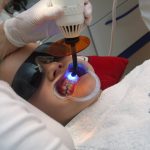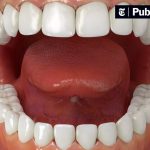Natural Remedies for Bone Loss in Teeth: Effective Ways to Treat and Prevent Dental Problems
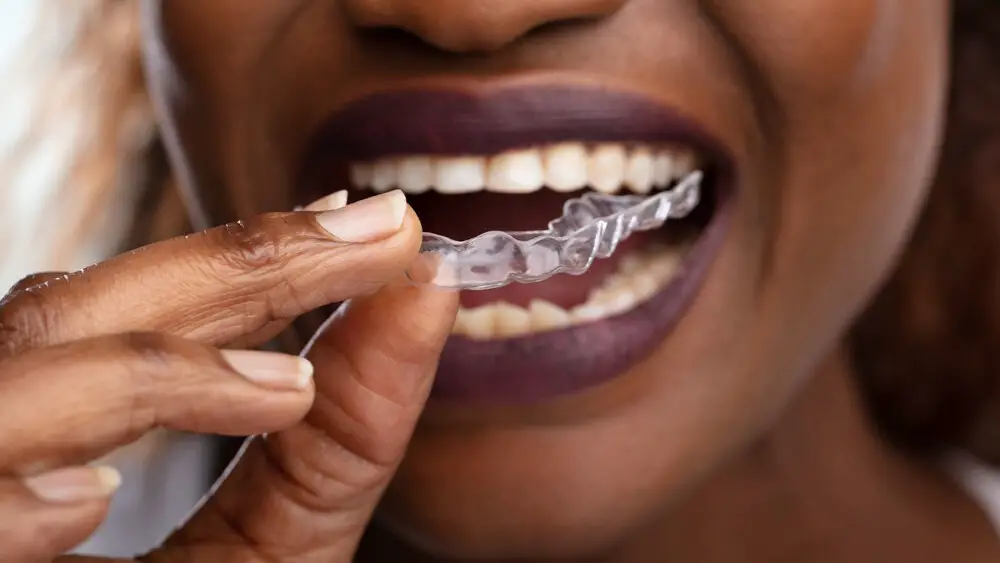
Bone loss in teeth is a common dental problem that can lead to significant oral health issues if left untreated. It occurs when the bone surrounding and supporting the teeth begins to deteriorate and weaken, resulting in loose teeth, gum infections, and eventual tooth loss. While there are various treatment options available, many individuals prefer natural remedies to address this issue. Natural remedies for bone loss in teeth can help to strengthen the bone, reduce inflammation, and promote healthy teeth and gums. In this article, we’ll explore effective ways to treat and prevent dental problems using natural remedies. The use of natural remedies for dental problems has become increasingly popular in recent years due to their effectiveness and safety. Natural remedies such as herbs, essential oils, and dietary supplements can help to improve the overall health of the teeth and gums, and prevent bone loss. Additionally, these remedies have fewer side effects compared to traditional treatments, making them a popular choice for individuals seeking a more holistic approach to dental care. By incorporating natural remedies into your dental care routine, you can maintain healthy teeth and gums, prevent bone loss, and avoid the need for invasive dental treatments.
Bone loss in teeth is a common dental problem that occurs when the bone surrounding and supporting the teeth deteriorates. This condition is caused by a variety of factors, including poor oral hygiene, gum disease, hormonal changes, and aging. Poor oral hygiene can lead to the formation of plaque and tartar, which can cause gum disease and ultimately lead to bone loss. Hormonal changes, such as those experienced during menopause, can also contribute to bone loss in teeth. Additionally, aging can cause a decrease in bone density, making the teeth more susceptible to bone loss. Preventative measures such as regular brushing and flossing, a healthy diet, and routine dental checkups can help prevent bone loss in teeth.
Dental problems are not only painful but can also lead to severe health issues if left untreated. Tooth decay and gum diseases are among the most common dental problems that can result in tooth loss and contribute to the development of cardiovascular diseases, respiratory infections, and diabetes. Therefore, it is crucial to prevent and treat dental problems promptly. Maintaining good oral hygiene, avoiding sugary and acidic foods, and visiting the dentist regularly can help prevent dental issues. In addition, natural remedies such as consuming calcium-rich foods, using essential oils, and oil pulling can also help prevent and treat dental problems. By taking care of our teeth and gums, we can ensure our overall well-being and prevent potential health risks.
Diet and Nutrition
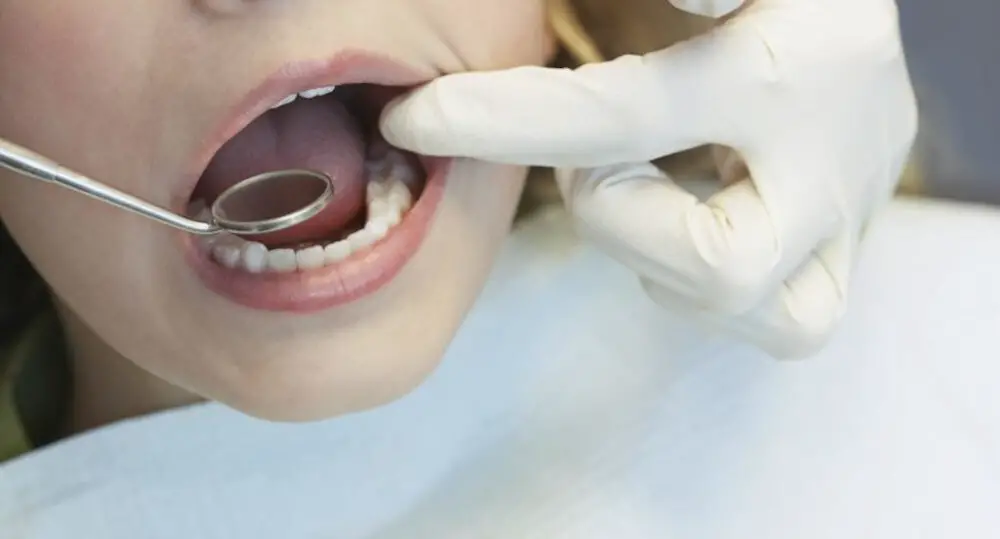
Diet and nutrition play a crucial role in maintaining healthy teeth and preventing dental problems. Calcium and vitamin D are essential nutrients that contribute to strong and healthy bones, including teeth. Calcium-rich foods such as dairy products, leafy greens, and fortified cereals are excellent sources of this nutrient. Vitamin D can be obtained from sunlight, fatty fish, and fortified foods like milk and cereal. In addition to calcium and vitamin D, a balanced diet that includes fruits, vegetables, and whole grains can promote overall oral health. These foods are rich in antioxidants and other nutrients that can help protect against gum disease and tooth decay. It is also important to limit sugary and acidic foods and beverages, which can erode tooth enamel and contribute to cavities. Drinking plenty of water and chewing sugar-free gum can also help promote saliva production, which helps to neutralize harmful acids in the mouth. By following a healthy and balanced diet, individuals can help protect their teeth and gums and prevent dental problems.
Maintaining healthy teeth and bones is crucial for overall health and well-being. To achieve this, one must incorporate a balanced and nutritious diet rich in calcium, vitamin D, and other essential nutrients. Some of the best foods that promote healthy teeth and bones include dairy products such as milk, cheese, and yogurt, as they are excellent sources of calcium. Other sources of calcium include leafy greens, nuts, and seeds. Vitamin D can be found in fatty fish, egg yolks, and fortified foods such as cereals and orange juice. Additionally, foods that are high in phosphorus, such as meat, poultry, and seafood, can also aid in bone and tooth health. By including these foods in your diet, you can naturally prevent and treat dental problems and maintain strong and healthy teeth and bones.
Maintaining healthy bones is crucial for overall well-being, and certain nutrients play a vital role in promoting bone health. Calcium is one of the most important nutrients in building and maintaining strong bones, but it also requires vitamin D to be properly absorbed and utilized. Other essential nutrients for bone health include magnesium, which helps regulate calcium levels in the body, and vitamin K, which is necessary for proper bone formation and repair. Additionally, getting enough protein, vitamin C, and zinc can also support bone health by promoting collagen synthesis and helping with bone remodeling. Incorporating these nutrients into your diet through foods like dairy, leafy greens, nuts, and lean proteins can help prevent bone loss and maintain healthy teeth.
Bone loss in teeth can lead to dental problems and weaken the overall structure of teeth. While maintaining proper oral hygiene is essential, taking supplements can also help prevent bone loss in teeth. Calcium and vitamin D are two of the most crucial supplements for maintaining healthy teeth and bones. Calcium helps strengthen the bones, while vitamin D aids in the absorption of calcium and phosphorus. Other supplements that can help prevent bone loss in teeth include magnesium, which plays a vital role in bone formation, and vitamin K, which helps regulate calcium deposition in bones. Incorporating these supplements into your daily routine can help prevent bone loss in teeth and promote overall dental health.
Lifestyle Changes

Lifestyle changes play a crucial role in preventing and treating dental problems, including bone loss in teeth. Maintaining a healthy lifestyle can prevent dental problems from developing in the first place. Regular brushing and flossing, along with a healthy diet, can help keep teeth and gums healthy. Foods rich in calcium, vitamin D, and other essential nutrients can help strengthen teeth and bones, preventing bone loss in teeth. Lifestyle changes such as quitting smoking and reducing alcohol consumption can also significantly improve dental health. Smoking and excessive alcohol consumption can increase the risk of dental problems such as gum disease and oral cancer, and can also contribute to bone loss in teeth. In addition to preventing dental problems, lifestyle changes can also help treat existing dental problems. For example, individuals with bone loss in teeth can make changes to their diet and lifestyle that promote bone growth. Exercise, a healthy diet, and supplements such as calcium and vitamin D can all help increase bone density and prevent further bone loss. Additionally, individuals with dental problems may benefit from stress-reducing activities such as yoga and meditation, which can help reduce inflammation and improve overall dental health. Overall, making healthy lifestyle changes can have a significant impact on dental health, preventing and treating dental problems such as bone loss in teeth.
Maintaining proper oral hygiene is crucial for overall dental health. Poor oral hygiene can lead to various dental problems such as cavities, gum disease, and tooth loss. Brushing and flossing daily, along with regular dental check-ups, can prevent the accumulation of plaque and bacteria in the mouth, which can cause significant damage to the teeth and gums. Additionally, a healthy diet and limiting sugary and acidic foods and drinks can also contribute to good oral hygiene. Neglecting proper oral hygiene can lead to not only dental problems but also other health issues such as heart disease and diabetes. Therefore, it is essential to prioritize oral hygiene as a part of one’s daily routine.
Quitting smoking and limiting alcohol intake can be highly effective in treating and preventing dental problems caused by bone loss in teeth. Smoking is known to decrease blood flow and oxygen supply to the gums, which can lead to periodontitis, a severe gum disease that can cause tooth loss. Additionally, alcohol abuse can cause dehydration, which can result in a dry mouth and a decrease in saliva production. Saliva helps to neutralize acids and protect the teeth from decay. Therefore, quitting smoking and limiting alcohol intake can significantly improve oral health and prevent further bone loss in teeth. It is important to seek professional help and support to quit smoking and reduce alcohol consumption for the best results.
Exercise has a significant impact on bone health, especially when it comes to preventing bone loss. Weight-bearing exercises, such as running, jumping, and weightlifting, stimulate the bones to produce more cells, making them stronger and denser. Regular exercise also helps to maintain muscle mass, which is critical for supporting bones and preventing falls. Low-impact exercises, such as swimming and cycling, can also be beneficial, as they help to improve cardiovascular health and overall fitness. However, it’s important to consult with a healthcare professional before starting any exercise program, especially if you have a history of bone loss or other health conditions.
Herbal Remedies

Herbal remedies have been used for centuries to treat various ailments, including dental problems. Many herbs have anti-inflammatory, antibacterial, and analgesic properties that can help alleviate toothache, gum inflammation, and other dental issues. Some popular herbs used in dental care include chamomile, peppermint, clove, and sage. Chamomile tea can be used to soothe inflamed gums, while peppermint oil can be applied topically to relieve pain. Clove oil is an effective natural anesthetic and has been used for centuries to treat toothache. Sage has antimicrobial properties and can help prevent gum disease. These herbs can be used in various forms, including as a tea, tincture, or oil, and can be an effective, natural way to treat and prevent dental problems. While herbal remedies can be effective in treating dental problems, it is important to note that they should not replace proper dental hygiene practices. Brushing twice a day, flossing, and regular dental check-ups are still necessary to maintain good oral health. Additionally, some herbal remedies may interact with medications or have side effects, so it is important to consult with a healthcare professional before using them. When used correctly, however, herbal remedies can be a safe and effective way to treat and prevent dental problems while promoting overall health and well-being.
Natural herbs have been used for centuries to promote healthy teeth and gums. Some of the most effective herbs include neem, clove, and peppermint. Neem has been shown to have antimicrobial properties, which help to prevent gum disease and tooth decay. Clove is another powerful herb that has been used for centuries to treat toothaches and promote healthy teeth and gums. Peppermint is also effective in promoting healthy teeth and gums, as it helps to freshen breath and fight bacteria that can cause tooth decay. Other herbs that can be beneficial for dental health include ginger, turmeric, and licorice root. By incorporating these natural herbs into your oral hygiene routine, you can improve your overall dental health and prevent a variety of dental problems.
Herbal remedies can be a great way to maintain optimal dental health. To prepare an herbal mouthwash, steep herbs like sage, peppermint, or chamomile in boiling water for several minutes. Strain the mixture and use it as a mouthwash once it has cooled to a comfortable temperature. Another method is to make an herbal paste using baking soda, water, and herbs like clove or cinnamon. Apply the paste to your teeth and gums and let it sit for a few minutes before rinsing. These herbal remedies can help soothe inflammation, fight bacteria, and freshen breath. It is important to remember that while herbal remedies can be effective, they are not a substitute for regular dental check-ups and hygiene practices such as brushing and flossing.
In recent times, people have been seeking herbal remedies as a natural alternative to traditional medicines to treat various health conditions. However, it is important to note that these remedies can have potential risks and side effects. For instance, some herbal remedies may interact with prescription medications, leading to adverse reactions or even toxicity. Additionally, some herbs can cause allergic reactions, gastrointestinal disturbances, or liver and kidney damage. It is crucial to consult a healthcare professional before using any herbal remedy to avoid any adverse effects and ensure the safety and efficacy of the treatment.
Medical Treatments
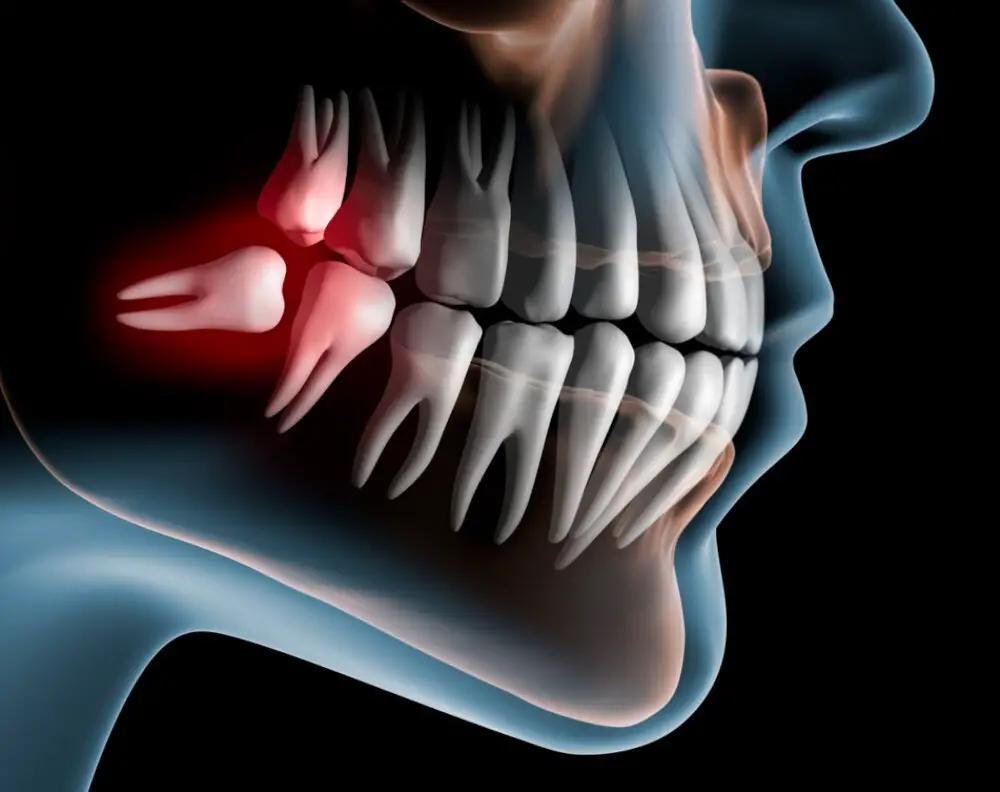
Medical treatments for dental problems have come a long way in recent years, and there are now many effective options available for those suffering from bone loss in teeth. One such treatment is the use of bisphosphonates, which are drugs that can help to slow down bone loss and even promote bone growth. These drugs are often prescribed to those with osteoporosis, but they can also be used to treat bone loss in teeth. Bisphosphonates work by inhibiting the cells that break down bone, while also stimulating the cells that build it up. This can help to reduce the risk of tooth loss and improve overall oral health. Another medical treatment that can be effective for bone loss in teeth is bone grafting. This involves taking bone from another part of the body, or using a synthetic material, and placing it in the area where bone loss has occurred. Over time, the body will integrate this new bone into the existing bone, which can help to strengthen the tooth and reduce the risk of further damage. This treatment is often used in conjunction with other therapies, such as dental implants or bridges, to provide a comprehensive solution for those with serious dental problems. While these treatments can be effective, it is important to work with a qualified dental professional to determine the best course of action for your specific needs.
Bone loss in teeth can be repaired through various procedures depending on the extent of the damage. One common procedure is bone grafting, where a small piece of bone is taken from another part of the body or from a donor and transplanted into the affected area. This aids in the regeneration of new bone tissue, which can then support the tooth. Another method is guided tissue regeneration, where a barrier is placed between the bone and gum tissue to prevent the growth of unwanted cells and promote the growth of bone and connective tissue. Both procedures may be combined with periodontal therapy, which involves deep cleaning of the affected area and removal of any harmful bacteria. It’s important to consult a dental professional to determine the best course of action based on individual needs.
There are several types of medications that can help prevent or treat dental problems. Antibiotics are often prescribed to treat infections in the teeth or gums, while pain relievers like ibuprofen or acetaminophen can help alleviate discomfort associated with dental problems. Fluoride treatments can also be used to strengthen teeth and prevent decay, while topical anesthetics can numb the gums and alleviate pain during dental procedures. Additionally, there are medications specifically designed to treat conditions like gum disease or dry mouth, which can help prevent further dental problems from developing. It’s important to talk to your dentist or healthcare provider about which medications may be best for your individual needs.
While medical treatments for dental health offer many benefits, there are also inherent risks involved. The use of antibiotics, for example, can lead to antibiotic resistance and the development of superbugs. Additionally, some dental treatments, like root canals and implants, can cause damage to nearby teeth and gums. On the other hand, the benefits of medical treatments for dental health include the ability to prevent and treat serious oral health conditions, like gum disease and tooth decay. These treatments can also improve the appearance of teeth and boost overall dental health, resulting in better overall health and quality of life. It is important to weigh the risks and benefits of any dental treatment and to choose the best option for your individual needs and circumstances.
Bone loss in teeth is a common dental problem that can lead to serious complications if left untreated. Fortunately, there are several natural remedies that can help prevent and treat this condition. One effective method is to increase your intake of calcium and vitamin D, which are crucial for healthy bones. Additionally, consuming foods that are rich in antioxidants and anti-inflammatory properties, such as green leafy vegetables and fruits, can help reduce inflammation and promote bone health. Other natural remedies include practicing good oral hygiene, using essential oils like clove and tea tree oil, and performing jaw exercises to strengthen the bones in your teeth. By incorporating these natural remedies into your daily routine, you can help prevent bone loss in teeth and maintain a healthy, vibrant smile.
Early detection and prevention of dental problems play a crucial role in maintaining good oral health. Regular dental check-ups can help detect dental problems such as cavities, gum disease, and tooth decay before they become severe. This not only saves you from discomfort and pain but also helps you avoid expensive and invasive dental procedures. Moreover, maintaining good oral hygiene and adopting healthy habits such as avoiding sugary and acidic foods and drinks can prevent dental problems from occurring in the first place. Therefore, it is essential to prioritize our oral health and take proactive measures to prevent dental problems.
It is essential to seek professional help when experiencing dental problems, as this will ensure that the issue is addressed correctly and in a timely manner. Natural remedies for bone loss in teeth can be effective, but they are not a substitute for professional dental care. Dentists have the knowledge, expertise, and equipment required to diagnose and treat dental problems effectively. Delaying treatment can lead to more significant dental issues, which can ultimately be more painful, time-consuming, and expensive to address. Seeking professional help when needed is an important aspect of maintaining good oral health and preventing dental problems from developing or worsening.
Conclusion
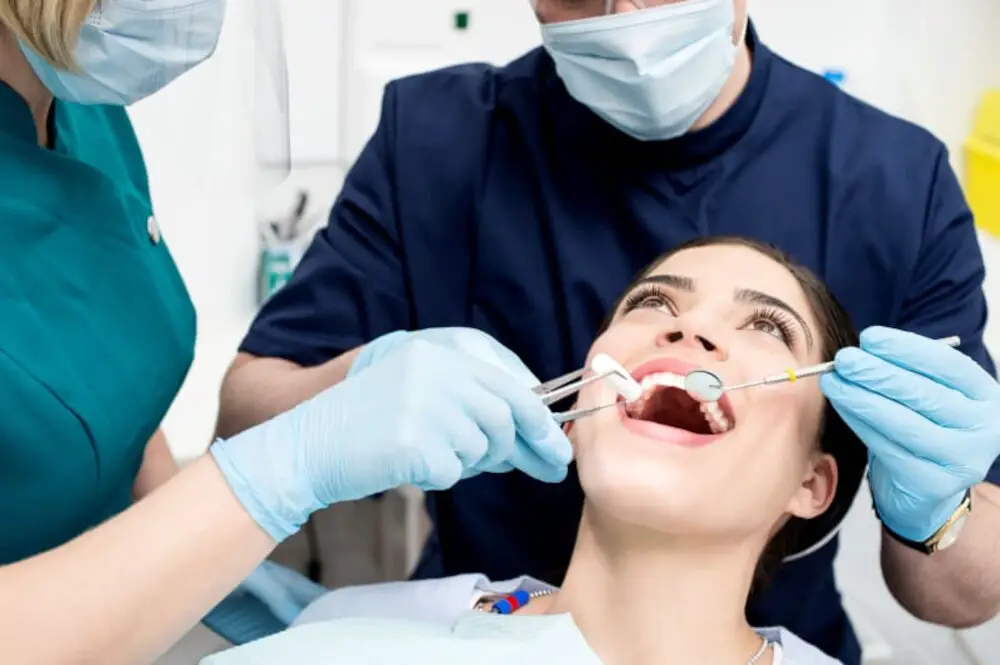
In conclusion, natural remedies can offer effective ways to treat and prevent bone loss in teeth, which can lead to various dental problems. Incorporating a balanced diet rich in calcium and vitamin D, practicing good oral hygiene habits, and using natural remedies such as oil pulling, green tea, and aloe vera can help promote stronger bones and healthier teeth. It is important to consult with a dental professional before trying any natural remedies, as some may interact with medications or have adverse effects. With a combination of natural remedies and professional dental care, individuals can maintain strong and healthy teeth for a lifetime.
